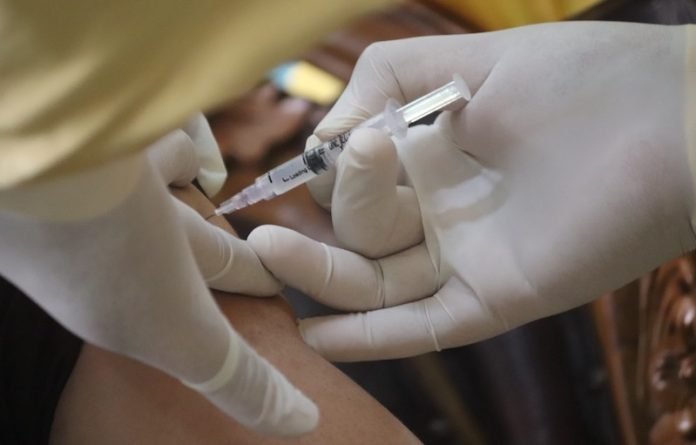
The ongoing COVID-19 pandemic has had a profound impact on the world, with many people suffering from severe illness or even losing their lives.
However, even those who have recovered from the virus may still face ongoing health issues in the form of long COVID.
Now, new research from the University of East Anglia has shed light on the risk factors associated with developing long COVID and has found that being vaccinated against COVID can cut the risk of developing long COVID in half.
Long COVID is a complex condition that can occur during or after a COVID infection, with symptoms continuing for more than 12 weeks.
Over two million people in the UK are thought to be suffering from long COVID, with the symptoms ranging from breathlessness, cough, heart palpitations, headaches, and severe fatigue to chest pain or tightness, brain fog, insomnia, dizziness, joint pain, depression and anxiety, tinnitus, loss of appetite, headaches, and changes in the sense of smell or taste.
To examine the risk factors associated with developing long COVID, researchers from the University of East Anglia looked at data from 41 studies around the world, involving a total of 860,783 patients.
The study found that being female, older, overweight, and a smoker all increased the risk of developing long COVID.
Other factors that were found to be associated with increased risk included co-morbidities such as asthma, COPD, type 2 diabetes, coronary heart disease, immunosuppression, anxiety, and depression.
Patients who were hospitalized during their acute COVID infection were also found to be more likely to experience long COVID.
On the other hand, the study found that people who had been vaccinated against COVID had a significantly lower risk of developing long COVID.
In fact, being vaccinated was found to cut the risk of developing long COVID in half.
This is an important finding, as it suggests that vaccination not only protects against severe COVID illness but also reduces the risk of long COVID.
The researchers say that their findings are important because they can help us better understand who may be more susceptible to developing long COVID and enable us to plan long-term care and support for those affected.
Furthermore, the study’s findings can inform public health promotion campaigns, encouraging smoking cessation, vaccination, and healthy weight management in the target population.
Overall, the research highlights the importance of vaccination in protecting against COVID and reducing the risk of long COVID.
It also underscores the need to address risk factors such as smoking and obesity, which can increase the risk of developing long COVID.
By taking steps to reduce these risk factors and encouraging people to get vaccinated, we can better protect ourselves and our communities from the ongoing impact of the COVID-19 pandemic.
Recovering from long COVID can be a complex and challenging process, but there are steps that people can take to manage their symptoms and promote recovery.
Seeking medical help, resting, staying active, managing symptoms, addressing mental health, eating a healthy diet, and getting support from others are all important components of the recovery process.
With time, patience, and support, many people with long COVID are able to recover and return to their normal activities.
If you care about COVID, please read studies about new evidence on rare blood clots after COVID-19 vaccination, and how diets could help manage post-COVID syndrome.
For more information about COVID, please see recent studies about nasal spray that lowers COVID-19 infection by 60%, and results showing zinc could help reduce COVID-19 infection risk.
The study was conducted by Dr. Eleana Ntatsaki et al and published in JAMA Internal Medicine.
Copyright © 2023 Knowridge Science Report. All rights reserved.



